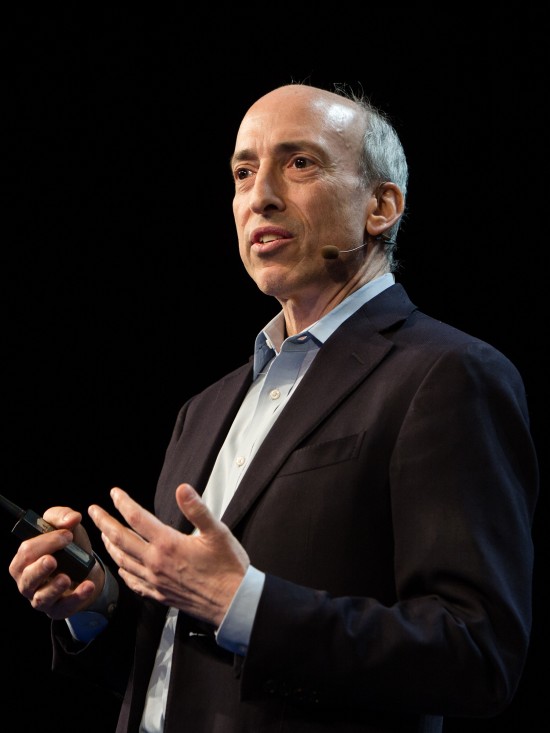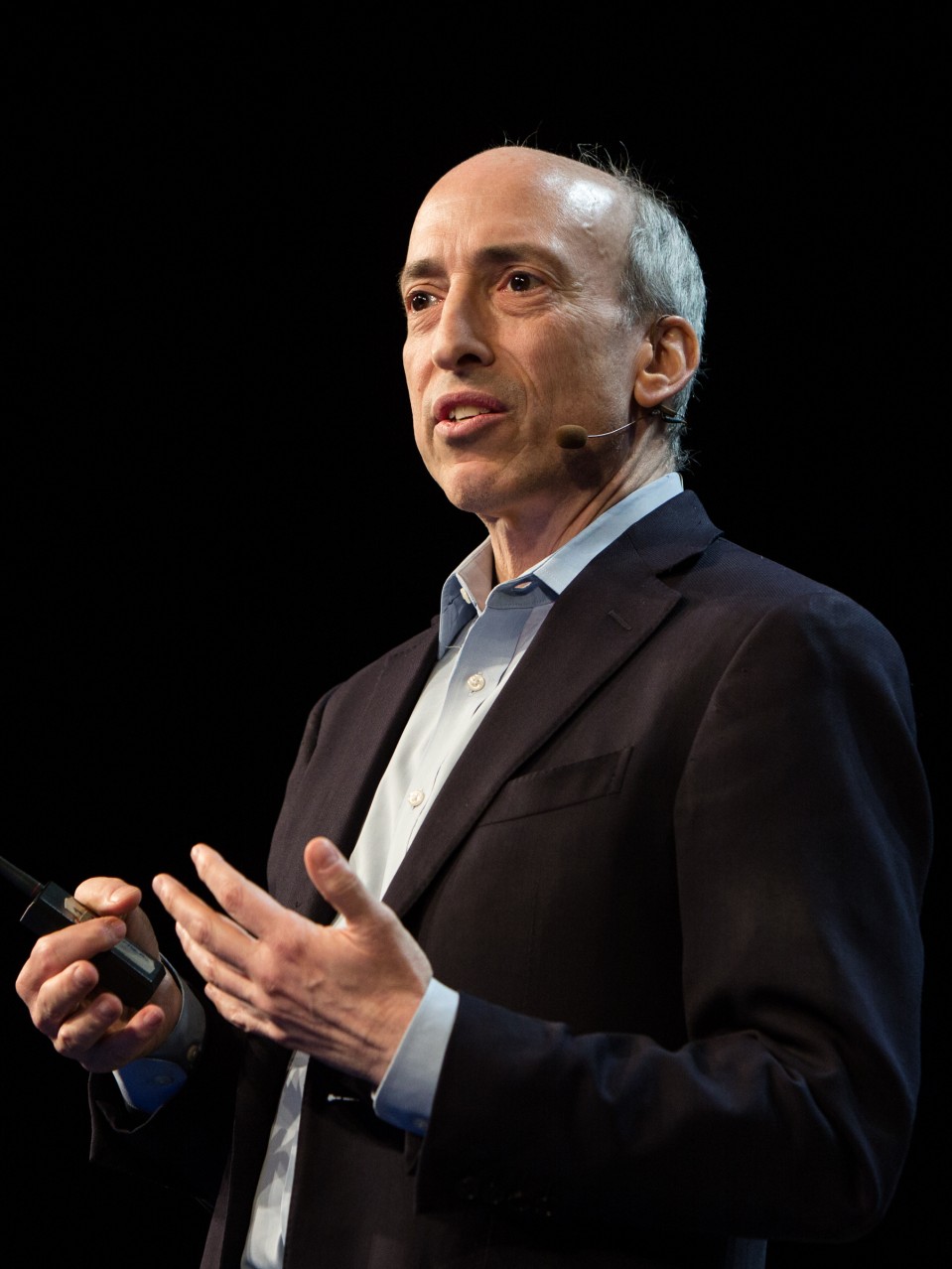Blockchain / ICOs
Former regulator under Obama says more than 1,000 ICOs are not following the law
Gary Gensler, now a lecturer at MIT, says some popular cryptocurrencies should be regulated as securities.



More than 100 cryptocurrency exchanges and over 1,000 initial coin offerings are operating outside US laws meant to protect investors from fraud, says Gary Gensler, who chaired the Commodity Futures Trading Commission from 2009 to 2014. This must end before some of the most promising financial applications of blockchains can be realized, Gensler—now a lecturer at MIT and senior advisor to MIT’s Digital Currency Initiative—told the audience today at MIT Technology Review’s Business of Blockchain conference.
Even popular cryptocurrencies XRP and Ether might be securities and thus subject to relatively strict regulation, he said.
More than $10 billion has been raised via ICOs, a blockchain-based fund-raising method. But a significant fraction of these are fraudulent, and many were launched in a way that is not compliant with US securities laws established in the 1930s. To reach its full potential “blockchain technology will need to come within the public policy framework,” Gensler said. “We’re not in very good shape right now.”
Blockchain technology has a chance to lower costs, lower risks, and remove unnecessary middlemen in the global financial system, said Gensler, but “the question is: how do we move forward?” First, what’s needed is a lot more clarity in the marketplace, he said. Regulators across the globe are scrambling to make sense of ICOs, trying to determine whether they are traditional investments like stocks and bonds—or something else that shouldn’t be subject to securities rules.
In fact, in many cases the answer is that they are both, said Gensler. If investors are buying tokens with the expectation that they will appreciate in value based on the efforts of others, that matches the traditional legal definition of a security, he said.
That could spell trouble ahead for Ripple's crypto-token, called XRP. That’s because the company has so much control over XRP’s monetary policy, and because many XRP holders are hoping the token will increase in value thanks to the efforts of the company’s developers, he said. Ethereum, the second most popular cryptocurrency network after Bitcoin, may also be a security, said Gensler, since its token was first sold in 2014, before the network actually launched. (Bitcoin, he said, does not have the features of a security.)
There are now a number of open questions for the SEC, said Gensler. Is it possible to design a so-called “utility token” that is solely about consumption, as opposed to investment? If developers sell tokens before a network launches, as a security, can it “evolve” into something other than a security after the network launches? Cryptocurrency challenges the traditional definition of a security, and some rules may have to be “tailored” in some way, he said—“but I don’t think it means that we just exempt the whole field and say good luck to investors.”